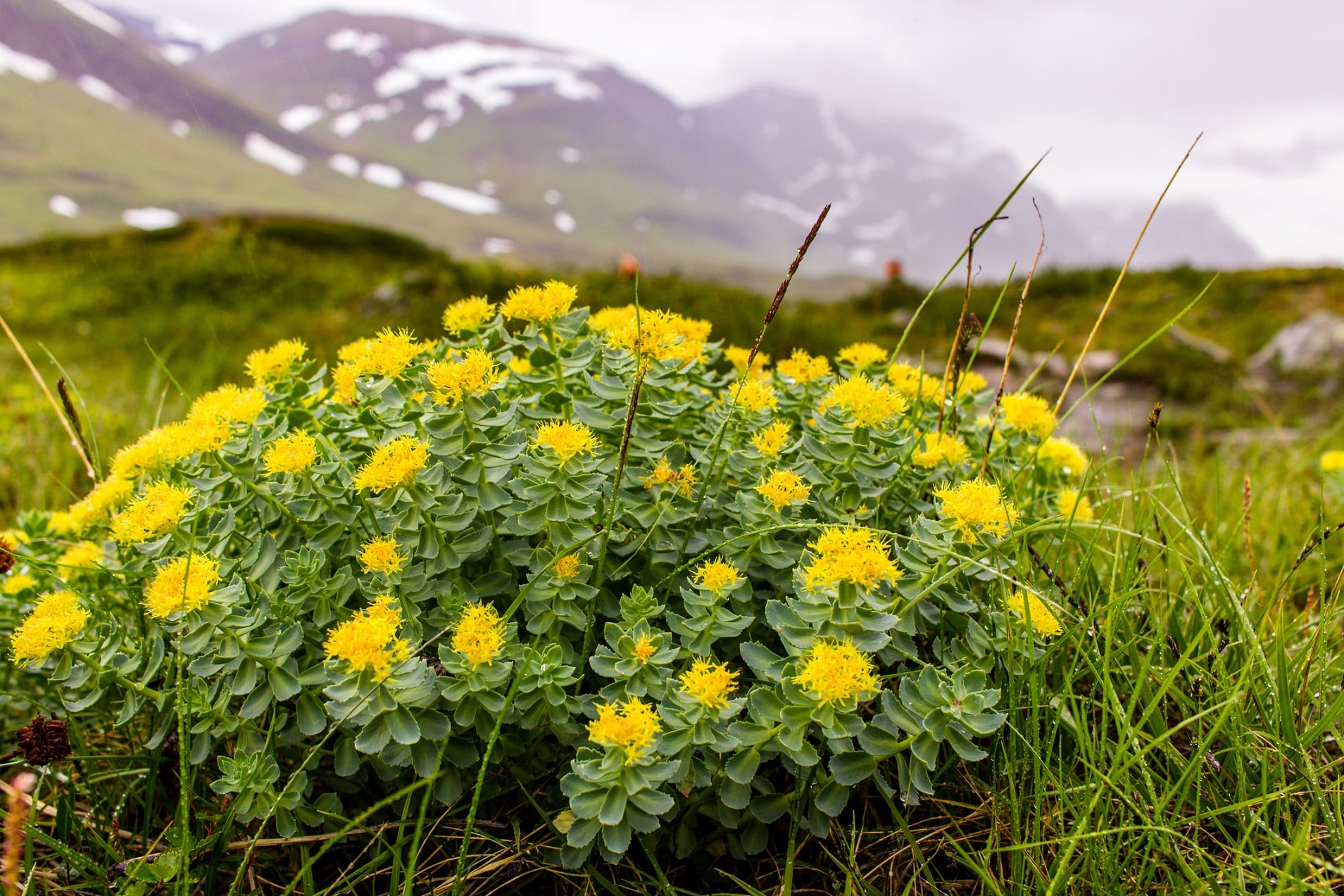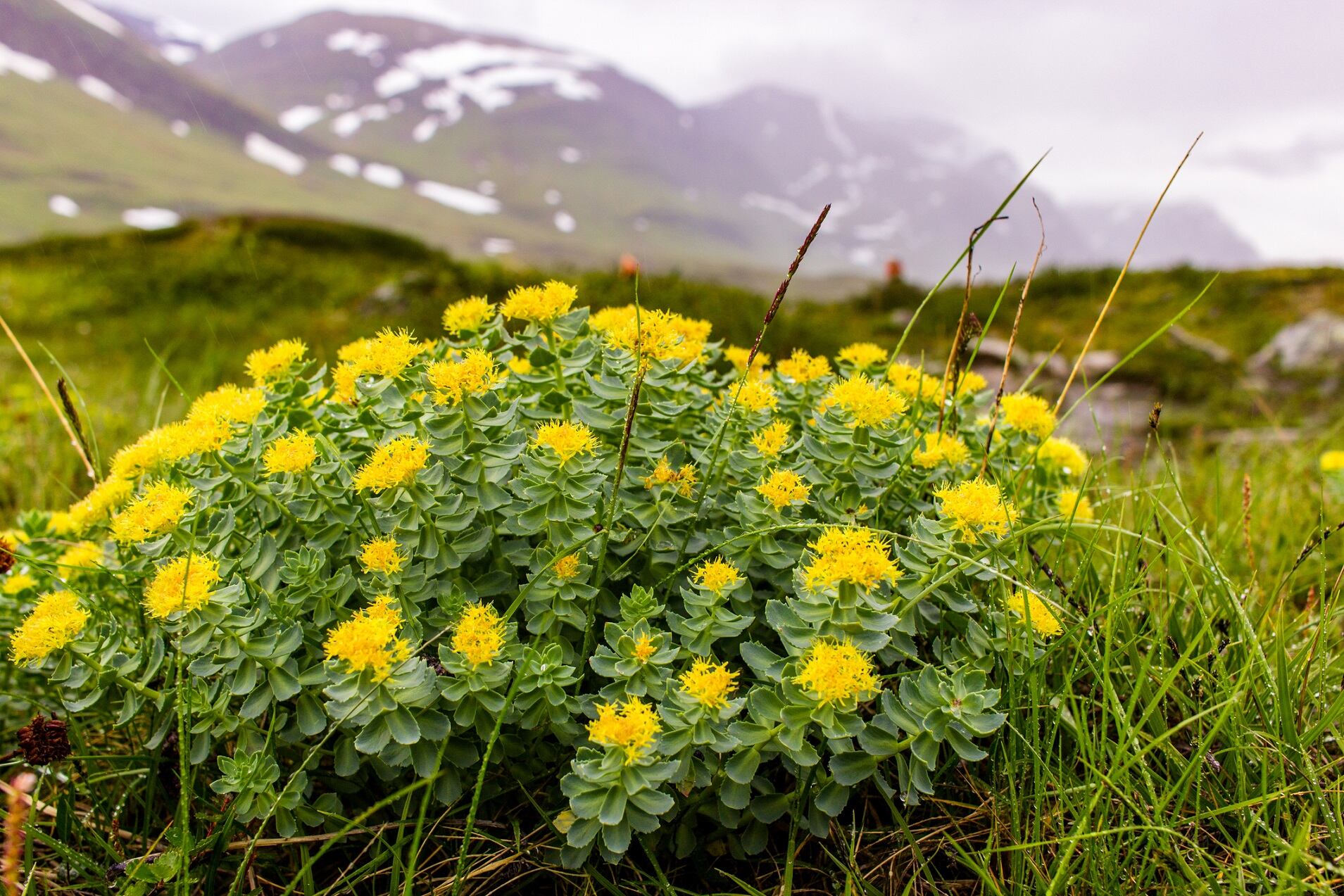Experts from Traditional Medicinals (USA), University of KwaZulu-Natal (South Africa), Murdoch University (Australia), Bundesamt für Naturschutz (Germany), also called for the supply to transition to cultivation, some of which are already operating in North America.
Demand for products formulated with Rhodiola rosea has been increasing, with forms of the herb in trade including dry extracts in solid dosage forms such as capsules and tablets, liquid extracts, cut, dried rhizome and root, and powdered rhizome and root.
The traditional primary health uses of the herb include stress, mental and physical fatigue, depression, and to boost energy. For an extensive review of R. rosea in HerbalGram 56, please click HERE.
Writing in the Journal of Ethnopharmacology, Josef Brinckmann from Traditional Medicinals and his co-authors stated that while global demand for R. rosea ingredients and products has been increasing in the 21st century, decreases continue for wild populations in the main commercial harvesting areas.
“The level of illegal harvesting in protected areas and cross border smuggling is increasing annually coupled with increasing incidences of adulteration and substitution of R. rosea with other wild Rhodiola species, potentially negatively impacting the conservation status of their wild populations, but also an indicator of scarcity of the genuine article,” they wrote.
“The current data suggests that the historical primary reliance on sourcing from wild populations of R. rosea should transition towards increased sourcing of R. rosea from farms that are implementing conservation oriented sustainable agricultural methods, and that sustainable wild collection standards must be implemented for sourcing from wild populations.”
“A highly relevant and valuable assessment”
Commenting independently on the paper, Stefan Gafner, PhD, chief science officer at the American Botanical Council, told us that, in his opinion, the paper is a “highly relevant and valuable assessment of the Rhodiola rosea trade.
“The authors have collected a substantial amount of generally difficult to obtain information from many different sources providing compelling evidence that the medicinal, food (or nutraceutical) and cosmetic use of the species has a negative impact on its availability, and that steps need to be taken to move away from harvesting the plant in the wild to cultivation,” said Dr Gafner.
Dr Gafner added that, based on discussions with companies in the rhodiola trade, the costs for wild harvested rhodiola are substantially lower than cultivated rhodiola roots/rhizomes, and therefore companies are hesitant to buy the higher-priced materials.
“These industry members also confirmed that Rhodiola rosea has become scarce in parts of China (Xinjiang) where it used to be harvested, therefore prompting harvesters to obtain materials illegally in the neighboring areas of Russia, particularly the Altai region,” he said. “One of the good news is that, according to the paper, the Russian government appears to have stepped up enforcement actions against the illegal rhodiola trade in the past years, although enforcement is still considered weak.
“On the other hand, additional enforcement in Russia will likely lead to more instances where Chinese traders sell other Rhodiola species, such as Rhodiola crenulata, Rhodiola quadrifida, and Rhodiola serrata, as Rhodiola rosea. Such adulteration is already taking place, as documented in the Brinckmann et al. paper, and also in the Botanical Adulterants Prevention Bulletin published by BAPP in 2017.”
According to Brinckmann et al. nearly 75% of the global dry extract volume is manufactured in China, about 13% in Europe, about 5% manufactured in the US, and the remaining 7% or so coming from elsewhere.
The main importers of Rhodiola extract from China are reportedly the US, then the UK, Australia, Canada, and South Korea.
The need for cultivation
With an estimated 8% average market growth between 2011 and 2015, global supply will need to transition towards sourcing from farms, wrote the paper’s authors.

Such efforts are already underway in North America, with notable cultivation in Alaska and Canada. Petra Illig from Alaska Rhodiola Enterprises, LLC, told NutraIngredients-USA that they are “definitely seeing an increased demand, and the challenge has been recruiting enough farmers in Alaska to meet that demand.
“It takes at least 5 years to grow it to maturity, and there are still questions regarding best agricultural practices as there is no handbook or manual about rhodiola cultivation as it's so new. Farmers are hesitant to put so much effort into a crop that takes so long to produce results until they are assured their efforts are worth it financially.
“Since this has been going on only a handful of years, there hasn't been enough time yet to convince them all. Currently we are involved in a USDA funded study with the University of Alaska to figure out best agricultural practice to optimize crop success.”
Nelda Radford, General Manager of the Alberta Rhodiola Rosea Growers Organization (ARRGO), called the Brinckmann paper, a “time-sensitive global overview and is a must read for anyone concerned about the future supply and sustainability of Rhodiola rosea.”
The cooperative was established in 2007, with its Rhodiola now grown across the Canadian prairies and certified by GACP (Good Agricultural Collection Practices) to be pure and fully traceable.
Echoing Illig’s comments, Radford said that while certain parts of Canada do appear to be well suited for growing R. rosea – and indeed some ARRGO members have been successful in their growing efforts – there is much that needs to be learned to make the crop more economically viable.
“It is hoped that improvements in yield and time to maturation will make cultivation of this rare and beneficial herb attractive to more Canadian farmers. Additionally, ARRGO openly collaborates with growers in Alaska and other parts of Canada to spread the knowledge and accelerate commercial cultivation.
“ARRGO does see some increase in demand for sustainably cultivated Rhodiola rosea across North America, Europe, Australia and parts of Asia. Cost is often a deterrent, and new customers face a major monetary decision when considering the use of cultivated Rhodiola rosea. Labor costs for wildcrafting and sustainable cultivation are far apart.
“There is much work to be done. ARRGO hopes that we can make a difference before it’s too late. We hope that with time there will be a win-win for growers and consumers, alike.”
Source: Journal of Ethnopharmacology
2021, Volume 269, 113710
“Running out of time to smell the roseroots: Reviewing threats and trade in wild Rhodiola rosea L”
Authors: J.A. Brinckmann, A.B. Cunningham, D.E.V. Harter



